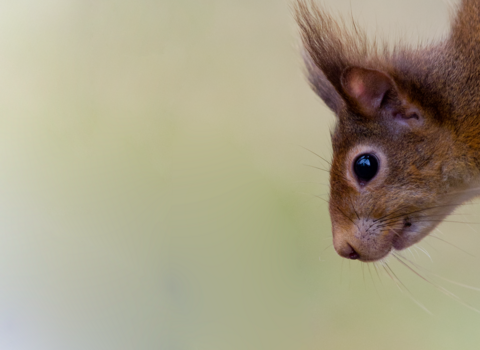
Cat flea © Tinka Neven, CC BY-NC-SA 2.0 https://creativecommons.org/licenses/by-nc-sa/2.0/
Cat flea
You are most likely to spot the cat flea if you have pets. It will feed on cats, dogs and people, although it can't live on us. It is a pest and needs to be controlled in the house for the comfort of pets and people.



